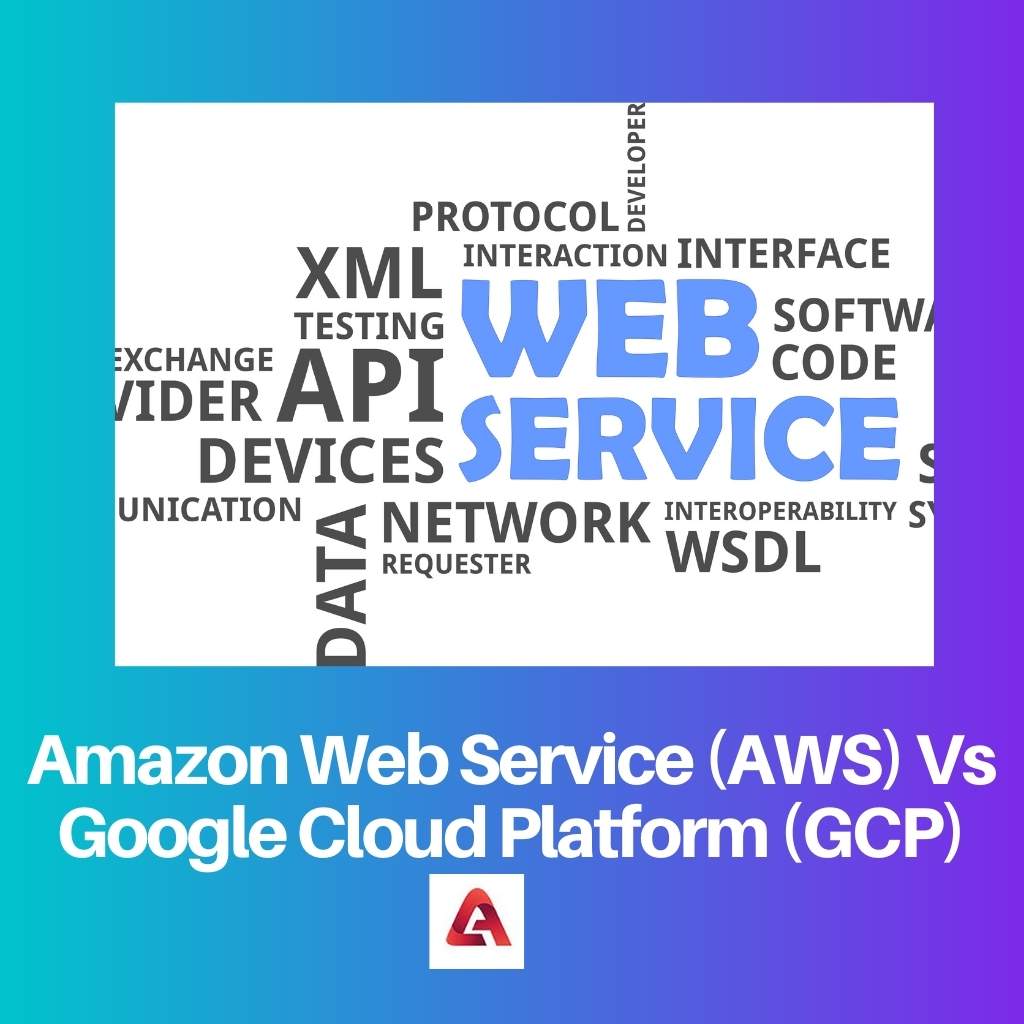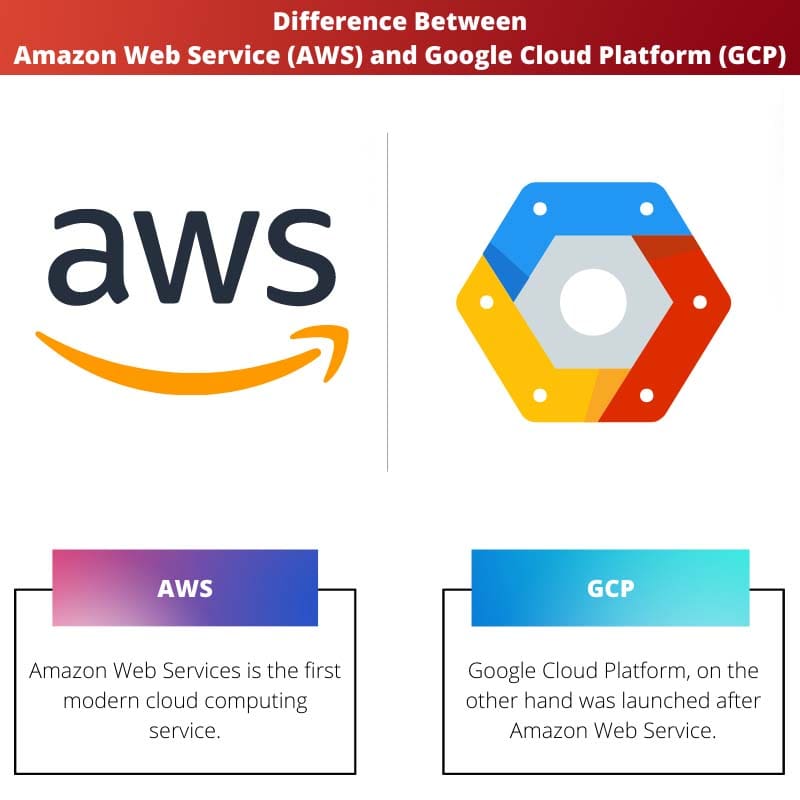Before we start with the comparison of the Amazon Web Service and the Google Cloud Platform, it is important to understand what cloud computing means.
To put it in the simplest of terms, cloud computing means availing all kinds of computing services like storage, databases, servers, networking software, analytics, etc., over the internet.
Over the years, cloud computing has become extremely popular with big and small companies alike.
The reason for that is cloud computing saves companies and users from problems that come with on-premise computing, like lack of flexibility, storage, scaling, accessing data, and difficulty collaborating.
Unlike in on-premise computing, where a company needs to hire a professional to avoid breaches and improve security standards, with cloud computing, all these services are provided by the server itself, and there is no need to hire any professional.
Key Takeaways
- AWS offers more services and features, while GCP focuses on core cloud computing services.
- GCP has a simpler pricing structure and may be more cost-effective for some use cases, while AWS has more pricing options.
- AWS has a larger market share and a more mature ecosystem, but GCP benefits from Google’s expertise in machine learning and data analytics.
Amazon Web Service (AWS) Vs Google Cloud Platform (GCP)
Amazon Web Services is a cloud computing platform that offers a wide range of services to businesses and individuals, including computing, storage, etc. Google Cloud Platform is a cloud computing platform that provides a range of infrastructure and platform services for businesses and individuals.

Amazon Web Services is the first modern cloud computing service. It is also the most preferred cloud computing service as it has more than a million users, the most for a cloud computing service provider.
It has a pay-as-you-go payment model, and they charge the user by the hour. Google Cloud Platform, on the other hand, was launched after Amazon Web Service.
GCP ranks third after Amazon Web Service and Azure when it comes to the number of users it has. It also has a pay-as-you-go payment model, but they charge the user by the second.
Comparison Table
| Parameters of Comparisons | Amazon Web Service (AWS) | Google Cloud Platform (GCP) |
|---|---|---|
| Company of origin | Amazon | |
| Year of Launch | The Amazon Web Service was launched in the year 2006 | The Google Cloud Platform was launched in the year 2008, however, it was made available for the general customers in 2011 |
| Payment Model | Pay-as-you-go payment model | Pay-as-you-go payment model. |
| Storage | Amazon Web Service has multiple storage providing services. | Google Cloud Platform has lesser options. |
| Networking | Amazon Web Service uses amazon virtual private cloud (VCP). | Google Cloud Platform uses a cloud virtual network. |
| Number of users | While the Amazon Web Service does not release its user number, it is safe to say that it has over a million users. | Google cloud platform also does not give the numbers out, it is also safe to say, that it has a lesser number of users than both AWS and azure. |
| Shares Owned | AWS owns 32% public cloud market share. | GCP owns about 7% public cloud market share. |
| Recovery Services | AWS provides cloud-based disaster recovery service. | GCP provides complete backup services. |
| Data transmission | AWS provides general data transmission. | GCP provides encrypted data transmission. |
What is Amazon Web Service?
Amazon Web Service is provided by Amazon. It was launched in the year 2006. It was the first company to provide a modern cloud infrastructure service.
They launched the Amazon Web Service under the name Amazon Elastic Compute Cloud in August of the year 2006. AWS provides a wide variety of services.
It is used by start-ups, multinational companies, and even some government agencies. Today, it has more than a million users, the highest number for any cloud computing service. 33% of the websites on the internet are hosted by AWS.
It has 77 availability zones in 24 geographical regions. It also owns 32% of the public cloud market share. Simple Storage Service (S3), Elastic Block Storage (EBS), and Elastic File System (EFS) are among some of Amazon Web Service’s storage options. AWS follows the pay-as-you-go option, but they charge you by the hour.
In the second quarter of this year (Q2’21), Amazon Web Service earned a total revenue of 14.809 billion dollars. Some of Amazon Web Service’s biggest clients include Netflix, Twitch, LinkedIn, and Facebook.

What is Google Cloud Platform?
The Google Cloud Platform is a cloud computing service provided by Google. It was launched in the year 2008 but made available to the general public in the year 2011.
Today, three out of ten telecommunication companies and seven out of ten media and entertainment companies use Google Cloud.
According to Google, their main focus is on providing services for retail, manufacturing, health, and life services. Google Cloud Platform is the third largest cloud computing service after Amazon and Azure.
It is available in 73 availability zones and 28 geographical regions. GCP also owns 7% of the public cloud market share. Google Cloud Platform provides Cloud Storage as a storage option. GCP also uses the pay-as-you-go payment model, however, they charge you by the second.
In the second quarter of 2021 (Q2’21), Google Cloud Platform earned a total revenue of 4.63 billion dollars. Some of Google Cloud Service’s biggest clients are Toyota, Spotify, LG, and Verizon.
Main Differences Between Amazon Web Service and Google Cloud Platform
- Amazon Web Service is provided by Amazon, while the Google Cloud program is provided by Google.
- Amazon Web Service was launched in the year 2006, while Google Cloud Platform was available to users by 2011. This gives AWS a 5-year head start over GCP.
- While both AWS and GCP have a pay-as-you-go payment model, AWS charges by the hour, which means you have to pay for the complete hour even if you have used the server just for a minute. Whereas GCP charges by the second, after completing one minute. Thus, these payment structures make AWS more expensive than GCP.
- AWS provides you with a lot of options when it comes to storage services like Simple Storage Service (S3), Elastic Block Storage (EBS), and many more, while GCP provides you only with cloud storage.
- AWS provides services for a varied group of users. From start-ups to multinational companies even a few government agencies, AWS caters to everybody. GCP, on the other hand, is focused on retail, manufacturing, health, and life services.
- AWS owns the largest amount of public cloud market share as it owns 32% of it. GCP on the other hand ranks third (after azure) as it owns 7% of the public cloud market share.
- While GCP provides a complete backup service, AWS provides only cloud-based disaster recovery service.
- While AWS has 77 availability zones in 24 regions, GCP has 23 availability zones in 28 regions.


The article is quite comprehensive in its examination of AWS and GCP. I appreciate the effort put into detailing the various aspects of both platforms.
Honestly, I think the information provided about both AWS and GCP is outdated. It would be great to see more recent statistics and figures to make the article more informative.
I agree, the article could benefit from including more up-to-date data and trends to give a clearer picture of the current AWS and GCP landscape.
I found the comparison table to be very enlightening. It’s a great starting point for anyone trying to weigh the pros and cons of AWS and GCP. Well done!
The table is indeed very informative and helps in visualizing the differences between AWS and GCP. It’s a key piece in the article.
The article breaks down the differences between AWS and GCP very well. I appreciate the detailed insight provided about both companies and their services. This will be very useful for companies deciding between the two cloud platforms.
I agree, the comparison is thorough and helpful – great read!
I have to question the bias in favor of AWS throughout the article. It seems to downplay GCP’s strengths. A more balanced approach would have elevated the credibility of the comparison.
Agreed, the piece should aim for a more impartial analysis of both platforms to provide a fairer evaluation.
I see what you mean. The article could benefit from presenting a more neutral view of both AWS and GCP.
The article’s tone is quite formal and academic, which adds to its credibility. However, it might benefit from incorporating a touch of humor or lightness to engage readers more effectively.
I see your point. A bit of humor or conversational elements could enhance the article’s appeal to readers.
This article provides valuable information about AWS and GCP, making it easier for businesses to make informed decisions about which cloud platform best suits their needs. Great work!
Absolutely, the insights provided here are instrumental in understanding the nuances of AWS and GCP. A well-researched piece!
The comparison of AWS and GCP is insightful, but it feels overly technical at times. It could be more accessible to a broader audience by simplifying the language and concepts.
I agree, making the content more approachable would help in reaching a wider audience and fostering better understanding of the topic.